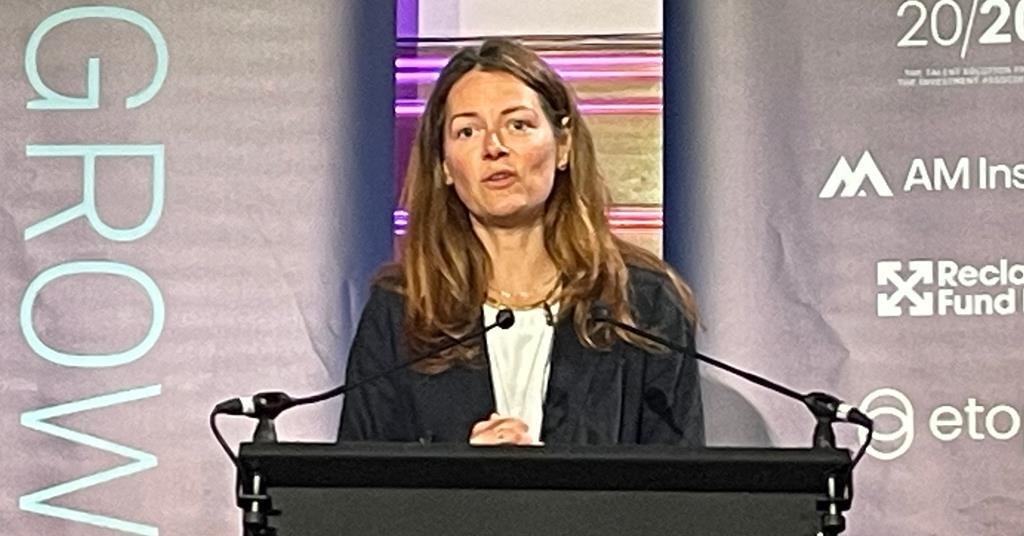Accelerating growth is not something the UK government or the investment industry can do alone, Poppy Gustafsson, the UK’s minister of state for investment, told the Investment Association’s annual conference yesterday.
She noted that the UK government must be involved in addressing certain challenges. “It’s about how we work with the private sector, how we engage with investors, and what the government can do – alongside regulators – to support that effort.”
One example of this collaboration is the Industrial Strategy, published earlier this week.
She said: “The priority [of the Industrial Strategy] is to be able to maintain and grow the UK as the world’s leading financial hub.
“This means rebalancing to regulate growth, cutting red tape for financial services firms, and driving forward initiatives to open more capital investment.”
Gustafsson highlighted that UK fund managers oversaw approximately £10.9trn in assets under management in 2023. In 2024, financial services contributed £214bn to the UK economy and supported 1.2 million jobs.
“It’s an incredibly important sector,” she said, adding: “The asset management industry anchors our global financial centre, thanks to its deep and liquid capital markets and strong access to jurisdictions around the world.”
She added that chancellor of the exchequer Rachel Reeves will next month unveil the Financial Services Growth and Competitiveness Strategy at Mansion House, laying out a 10-year plan to expand the sector through to 2035.
“Our ambition is for the UK to become the world’s most innovative full-service financial centre”
Poppy Gustafsson, UK’s minister of state for investment
“Our ambition is for the UK to become the world’s most innovative full-service financial centre – and we’re already making progress,” Gustafsson noted.
“The UK is the fastest-growing economy in the G7. Our modern industrial strategy represents a whole-of-government effort to support high-growth sectors and leading-edge industries.”
She emphasised that the 10-year plan is built on stability and openness to attract investment and make the UK the world’s most investable country.
“We are making it easier and faster to do business – offering long-term stability, reducing energy costs for manufacturers, and backing them through the British Industrial Competitiveness Scheme,” she said.
“We’re also strengthening international cooperation, with new trade deals from the US, the EU, and India. These are all essential to maintaining resilient supply chains.”
Gustafsson noted that billions of pounds have been invested in innovation and business finance, increasing the British Business Bank’s capacity to nearly £26bn.
“These initiatives show the government co-investing alongside the private sector to support future growth,” she continued.
She concluded by stressing that the progress achieved so far stems from “deep, thoughtful conversations” between the industry and the government, starting with the investment strategy and moving toward the forthcoming Financial Services Growth and Competitiveness Strategy.
“This is not a fixed point in time,” she said. “It’s the beginning of an ongoing conversation with the sector to ensure we make the most of the unique asset we have here in the UK.”
Read the digital edition of IPE’s latest magazine


